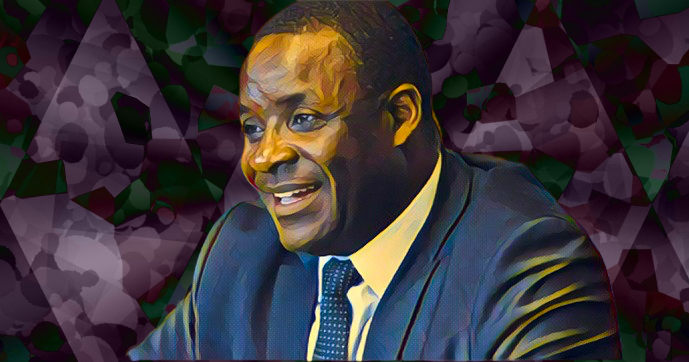A diplomatic rift has erupted between Zimbabwe and Zambia following controversial remarks made by Zimbabwean Presidential Spokesperson George Charamba. Charamba’s comments, made on social media, have drawn sharp criticism from Zambia and raised concerns about the future of bilateral relations between the two neighboring countries.
The controversy began when Charamba labeled Zambia’s newly inaugurated President Hakainde Hichilema a “sellout” in connection with his association with Nelson Chamisa, the leader of Zimbabwe’s opposition MDC Alliance. The remarks, which were posted on Charamba’s Twitter account, came at a particularly sensitive time, as Zimbabwean President Emmerson Mnangagwa was attending Hichilema’s inauguration ceremony in Lusaka.
Charamba’s attack on Hichilema is not an isolated incident. In May of this year, he made similar comments about the Zambian leader. However, the issue escalated when pictures surfaced of Hichilema and Chamisa together at the inauguration. These images quickly went viral, reigniting the controversy and prompting a wave of reactions on social media.
The inauguration ceremony, attended by several African leaders, was seen as a historic moment for Zambia, marking a peaceful transition of power from former President Edgar Lungu to Hichilema. However, the presence of opposition leaders from various African countries, including Chamisa, added a layer of political significance to the event. The United Party for National Development (UPND), Hichilema’s party, broke with tradition by inviting opposition figures to the ceremony. This move was intended to send a message of unity and inclusiveness, not only within Zambia but across the African continent.
Joseph Kalimbwe, the spokesperson for the UPND, did not mince words in his response to Charamba’s comments. He described the remarks as “catastrophic” and expressed concern about their potential impact on the relationship between Zambia and Zimbabwe. Kalimbwe emphasized that the comments would not be taken lightly, especially considering the presence of Mnangagwa at the inauguration.
Kalimbwe’s reaction highlights the sensitivity of the situation. The relationship between Zimbabwe and Zambia has historically been close, with strong ties between the two nations. However, Charamba’s comments have introduced a strain into this relationship, with the potential to disrupt diplomatic relations.
Charamba’s remarks has been compounded by the fact that they were made publicly on social media. Charamba, who uses the Twitter handle @Jamwanda2, has a history of making provocative statements online. However, his latest outburst has attracted widespread condemnation, both within Zimbabwe and beyond.
When Twitter users reminded Charamba of his previous comments about Hichilema, he doubled down, stating, “Yes, they are sellouts. What is your problem?” This response only served to further inflame the situation, leading to a diplomatic tension that threatens to overshadow the positive aspects of Hichilema’s inauguration.
Alex Magaisa, a lawyer and political analyst, pointed out that Charamba’s role as the President’s spokesperson means that his comments carry significant weight. Magaisa expressed concern that Charamba’s statements were not only undiplomatic but also dangerous, as they could destroy the historically strong ties between the two countries.
The timing of Charamba’s remarks is particularly troubling, given the recent victory of Hichilema and the close relationship that appears to be developing between him and Chamisa. Within Zimbabwe, there is growing concern that Hichilema’s rise to power could embolden the opposition and pose a challenge to the ruling ZANU-PF party. This fear is believed to be at the heart of Charamba’s comments, as the ruling party grapples with the potential implications of Hichilema’s victory for Zimbabwe’s domestic politics.
The tensions between Mnangagwa and Chamisa have been simmering since Hichilema’s electoral victory. Both Mnangagwa and Chamisa have claimed to have close ties with the new Zambian president, further complicating the political dynamics in Zimbabwe. Charamba’s remarks have exacerbated these tensions, drawing attention to the uneasy relationship between Zimbabwe’s ruling party and the opposition.
In response to the growing controversy, human rights lawyer Doug Coltart took to Twitter to condemn Charamba’s comments. Coltart described the situation as “scandalous,” pointing out that Charamba’s attack on Hichilema came while Mnangagwa was in Zambia attending the inauguration. He highlighted the seriousness of the issue, noting that Charamba’s role as the spokesperson for the President means that his words are interpreted as representing the views of the Zimbabwean government.
Chamisa, who has been at the center of the controversy, has remained defiant in the face of the attacks from the Zimbabwean government. In an interview with journalists in Zambia, he reiterated his party’s determination to continue fighting for political change in Zimbabwe. Chamisa criticized the ZANU-PF government for creating an uneven playing field and restricting his ability to reach his supporters through state-controlled media. He pointed out that Zimbabwe has only one television station, which has been monopolized by the ruling party since independence. Despite these challenges, Chamisa expressed confidence in his party’s ability to connect with the people and continue its struggle for a more democratic Zimbabwe.
The broader implications of this diplomatic situation are still unfolding. Hichilema, in his inauguration speech, pledged to pursue a foreign policy based on mutual interest and respect. He emphasized Zambia’s commitment to maintaining open and cordial relations with its neighbors and the international community.


